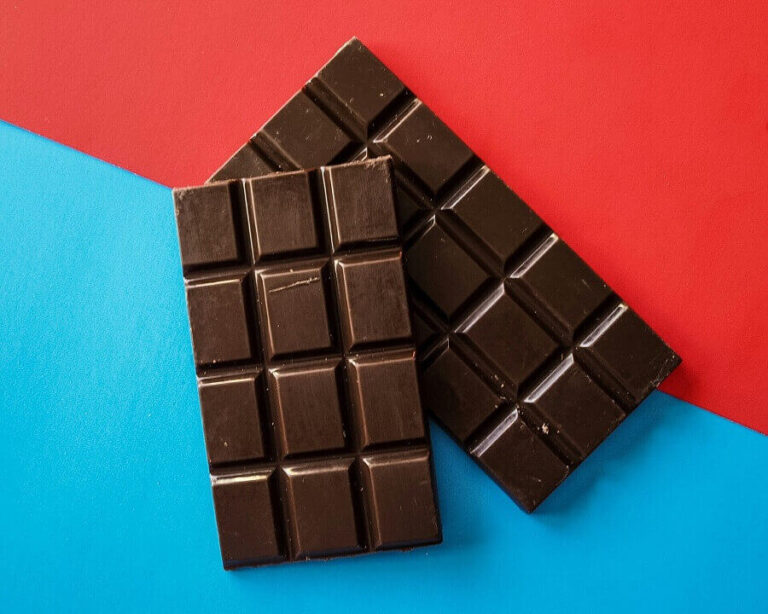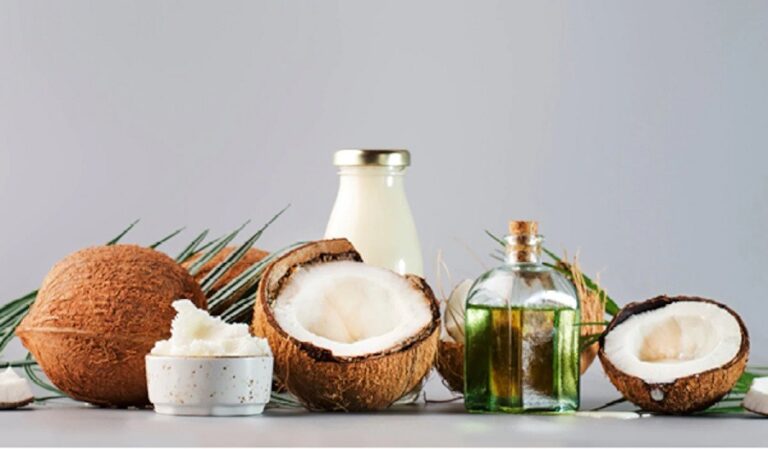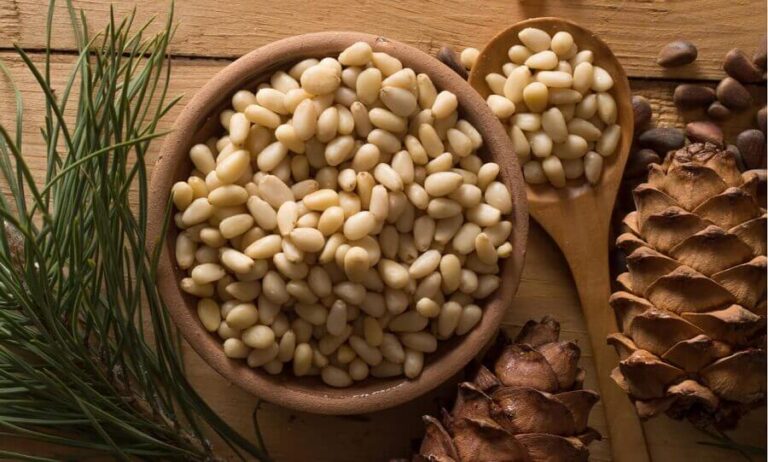Coconut oil What is it?
Coconut oil is a product made from the manual and (in some cases) chemical extraction of coconut. The nutritional properties of this product have made it popular in health food stores and in the fitness community.
The fats in coconut oil are predominantly short-chain saturated acids. This means that they can be metabolized by the body quickly and do not stagnate or clog the arteries. Another of its unique properties is that it is a chemically more stable oil compared to its plant relatives.
In addition, its flavor is versatile so it can be used in the kitchen for both sweet and savory recipes. What are the properties and uses of coconut oil?
Coconut oil properties
The properties of coconut oil are:
1. It is stable at high temperatures
Coconut oil is able to withstand high temperatures (up to 180 ° C), without degrading. This fact makes it an ideal oil for stir-frying and cooking. Compared to other oils such as sunflower, and olive oil practically does not degrade which prevents the formation of trans fats when cooking.
2. It is not stored as body fat
While the calories in coconut oil are similar to other types of oils (1) . The fatty acids that compose it are: caprylic, lauric and capric acid are short, allowing them to be used quickly and stored in the form of body fat.
3. Increases good cholesterol (HDL)
Coconut oil is a food high in healthy fats . There are several studies (4) (3) that have confirmed including this food every day is an indicated strategy to increase good cholesterol and therefore improve cholesterol levels. As for lowering bad cholesterol , studies are not yet conclusive.
4. Low glycemic index
Like any other oil, coconut oil has a low glycemic index . For this reason, this food is allowed for people with carbohydrate metabolism disorders such as type 2 diabetes.
5. Promotes the synthesis of sex hormones
Saturated fatty acids are essential for the synthesis of male hormones such as testosterone. In addition, it has been confirmed that including coconut oil on a regular basis in the diet is a simple way to counteract and minimize the side effects of menopause. (6)
6. Improves skin health (eczema treatment)
One of the properties of coconut oil is to improve the health of the skin. The lauric acid and capric reduce inflammation typical cases of eczema and other skin disorders.
7. Can improve memory and cognitive functions
Although there are still studies to confirm for sure the properties of coconut oil on the nervous system. Some studies suggest that it might improve cognitive functions and prevent Alzheimer’s in the long term. (6)
Coconut oil vs butter vs palm
Coconut oil is a healthy alternative to saturated animal fats like butter. More than 70-85% of the fatty acids that compose it are saturated and short. (2) In butter the fatty acids are long chain, this makes it a difficult fat to metabolize.
Compared to palm oil, coconut oil has a better lipid profile as well as a notable difference in taste. In addition, the excessive use of palm oil is associated with an imbalance of Omega-3 / Omega-6 fatty acids. One of the properties of coconut is to regulate it.
How is coconut oil made?
Coconut oil can be made from the process of fermenting, separating and heating the coconut. As well as a cold pressing. Unfortunately, mechanical compression only removes 10% of the fat from the coconut.
To increase the extraction, the raw pulp is usually heated and in some cases the use of acids and other chemical products is used. As a result, some properties such as its vitamin E content are lost . As well as its characteristically sweet aroma and flavor, they are deteriorated. We recommend buying organic coconut oil. The organic food not only allow the use of chemicals in their production but also take into account the ecological balance.
Is coconut oil good for weight loss?
Losing weight requires a negative calorie balance. Including coconut oil in moderation in your diet is a great way to lose weight. However, when there is an excess of this food, it generates the opposite effect. The key: regulate the amount.
Including about 10 g of coconut oil in meals is enough to obtain its properties and nutritional benefits. An excess in its use can lead to weight gain. The ideal way to lose weight is not to add more than a teaspoon per plate.
Coconut oil Why is it solid?
Coconut oil melts at a temperature close to 24 ° C and is solid at lower temperatures. This is because it is composed of short chain fatty acids. Due to this change of state between solid and liquid at room temperature, it is not the oil of choice in the food industry. It is important to know that changing from solid to liquid and vice versa its nutritional properties are not affected.
ABSTRACT
- Coconut oil is a type of vegetable fat made up of short-chain saturated fatty acids.
- One of the nutritional properties of coconut oil is its ability to be metabolized quickly, as well as its consumption in moderate amounts is good for stabilizing hormonal levels.
- Coconut oil is a food allowed weight loss processes. As well as on a low carb diet or even on the ketogenic diet .
- Due to its chemical properties, this vegetable fat is used both in the cosmetic industry and in haute cuisine.







